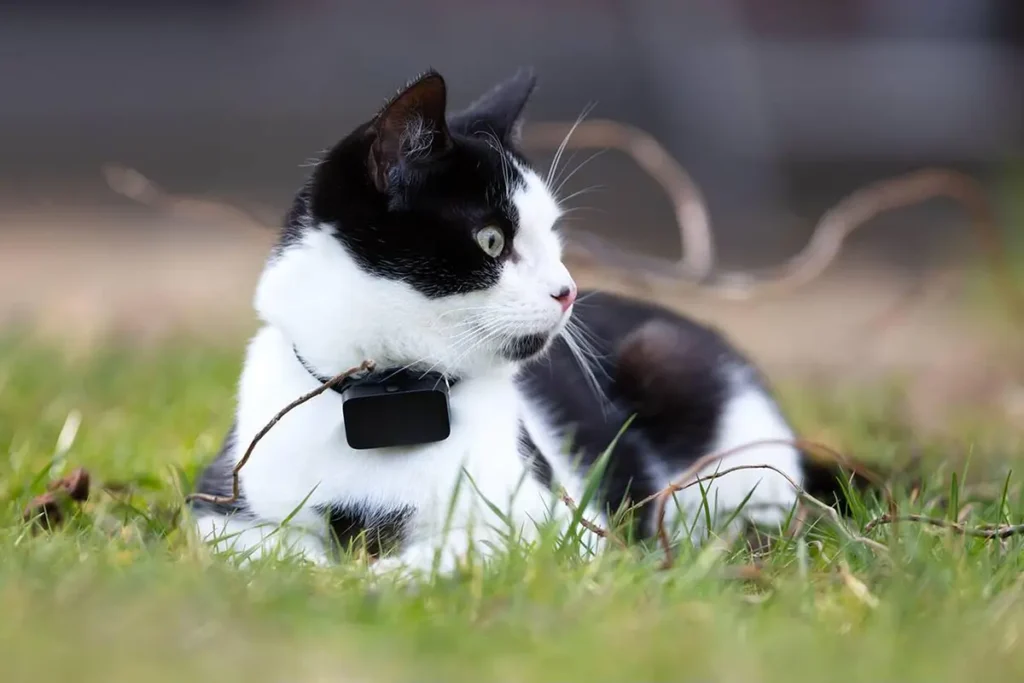Ever had that heart-stopping moment when your pet vanishes? It’s like they’ve pulled a Houdini, and suddenly, you’re scouring the neighborhood, calling out their name, shaking a box of treats like it’s a magic wand. Enter GPS tracking – the modern-day lifesaver for pets. Whether your curious cat slips out at night or your adventurous dog runs wild at the park, GPS technology offers peace of mind. It’s not just about keeping an eye on them—it’s about getting them back, safe and sound, during rescues or emergencies.
In this post, we’ll explore how GPS tracking can make all the difference in pet rescue situations, from day-to-day escapes to larger emergencies.
- What is Pet GPS Tracking and How Does It Work?
- Benefits of GPS Tracking in Pet Rescues
- GPS Tracking in Different Emergency Scenarios
- Comparing GPS with Other Tracking Methods
- Choosing the Right GPS Tracker for Your Pet
- What’s Next for GPS in Pet Rescue?
- Conclusion: Why Every Pet Parent Needs a GPS Tracker
What is Pet GPS Tracking and How Does It Work?
Think of GPS trackers like a personal “Find My Pet” app. They use satellites to pinpoint your pet’s exact location, and voila—you get real-time updates right on your phone. No more panic runs through the neighborhood or posting “lost pet” flyers.
There are different types of trackers out there, but most work the same way. You attach a small, lightweight device to your pet’s collar. That tracker sends signals to satellites orbiting the earth, which then triangulate your pet’s location. It’s like having a mini-guardian angel constantly keeping an eye on your four-legged friend.
The real magic happens with features like geofencing. This allows you to set up a virtual boundary (say, your backyard). If your dog decides to bolt beyond that zone, you get an immediate alert, so you can act fast.
Benefits of GPS Tracking in Pet Rescues

When the unexpected happens—whether it’s your dog chasing after a squirrel and disappearing into the woods, or a natural disaster forcing pets to flee—GPS trackers can be game-changers.
- Real-time Location Updates: Imagine this scenario: your dog runs off at the park, and instead of frantic searches, you just pull out your phone and check their exact location. You get real-time updates as they zigzag across the park. No need to play detective or guess which direction they might have gone.
- Search and Rescue Made Easy: When things get tricky, like a pet disappearing into a forest or a cityscape, GPS trackers make it easy for both owners and rescue teams to pinpoint their location. Even in challenging terrains, a GPS signal can lead searchers straight to your pet—saving time and energy when every second counts.
- Fast Response Time: In emergencies, time is everything. The quicker you can locate your pet, the quicker you can rescue them. For pets that get lost in disasters—think floods, fires, or storms—knowing where they are in real-time can literally save their lives.
GPS Tracking in Different Emergency Scenarios
Life can throw some pretty wild curveballs at us. Here’s how GPS tracking can help in a few real-world pet rescue scenarios:
- Natural Disasters: When disaster strikes, pets often get disoriented and flee. Fires, floods, or hurricanes can send them scattering. With a GPS tracker, even if your pet runs off in fear, you can track their location and bring them back home safely.
- Dognapping or Pet Theft: Sadly, pet theft isn’t as rare as we’d like it to be. In these cases, a GPS tracker can be your pet’s lifeline. The moment they’re taken outside of a designated safe zone, you get a notification, allowing you to act fast and possibly recover your pet before they’re out of reach.
- Lost in the Woods or City: Whether you live in the country with vast open spaces or in a busy city, pets can get lost or disoriented easily. In the woods, the thick underbrush makes searching by sight impossible, and in cities, pets can quickly disappear into alleyways and streets. A GPS tracker makes sure you’re not left guessing where to look.
Comparing GPS with Other Tracking Methods
Microchips and Bluetooth trackers? Sure, they help, but GPS offers something a little more… proactive. A microchip only works if someone else finds your pet and takes them to a vet or shelter with a scanner. With GPS, you don’t have to wait for someone else—you get instant access to your pet’s location.
Bluetooth trackers have limited range (we’re talking a few hundred feet at most), while GPS trackers work across a much larger area. Whether your dog is two blocks away or a mile into the woods, a GPS tracker keeps you connected. And if you’re in a rural area, a combination of cellular and GPS signals ensures that your pet’s location stays visible.
Choosing the Right GPS Tracker for Your Pet
Not all trackers are created equal. Here’s what to consider when picking the perfect one for your pet:
| Feature | Why It Matters |
|---|---|
| Battery Life | Make sure the tracker doesn’t die when you need it most. Some last days, others up to a week or more. |
| Size and Comfort | Smaller pets need lighter, more compact trackers, while larger pets can carry more robust models. |
| Waterproofing | Pets love water. Make sure their tracker can handle the occasional swim or mud bath. |
| Geofencing | Set up safe zones and get alerts when your pet wanders off. |
| Rural vs Urban Use | Live in the sticks? Go for a tracker that handles weak signal areas well. City folks have it a bit easier with more reliable coverage. |
What’s Next for GPS in Pet Rescue?
The future looks bright for GPS pet tracking technology. Companies are working on integrating even more features, like drones that can assist in search efforts or sensors that detect your pet’s health status.
There’s even talk of combining AI with GPS to predict where pets might go next based on their behavior. Imagine knowing that your dog is likely to head to their favorite spot even before they get there.
Conclusion: Why Every Pet Parent Needs a GPS Tracker
In the end, GPS trackers aren’t just about preventing pets from getting lost—they’re about ensuring that when things go wrong, you have the tools to bring your pet home. Whether it’s a small wander through the park or a larger disaster, having that little device on their collar could mean the difference between a quick reunion and days of heartache.

Dalton Warner
Dalton Warner is a seasoned tech writer and digital marketing expert with over five years of experience in consumer gadgets. As the mind behind The Gadget Flux Blog, Dalton Warner combines a passion for emerging tech with an ability to break down complex concepts into engaging, reader-friendly content. Their work has been featured on major platforms, helping audiences stay informed on the latest trends in AI-powered devices, smart homes, and more. When not writing, Dalton Warner enjoys exploring new gadgets and experimenting with smart home setups.
